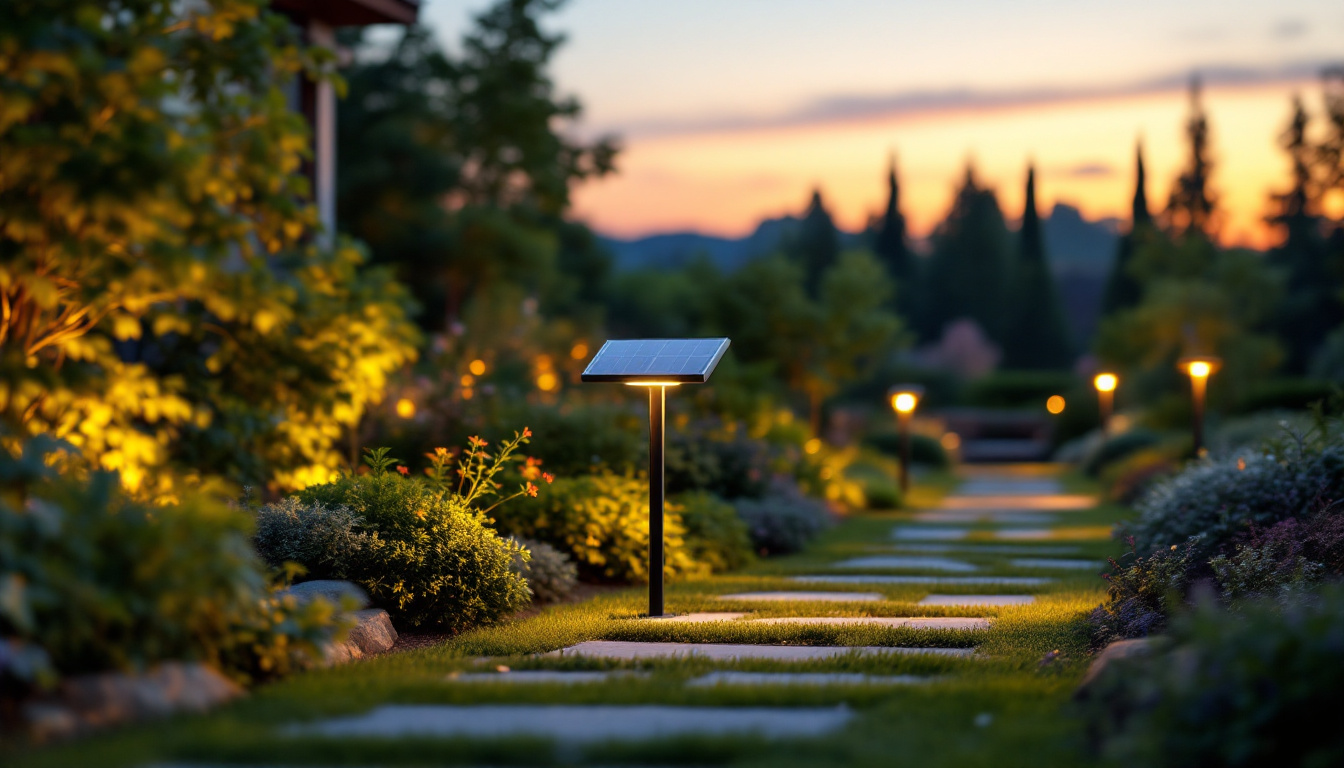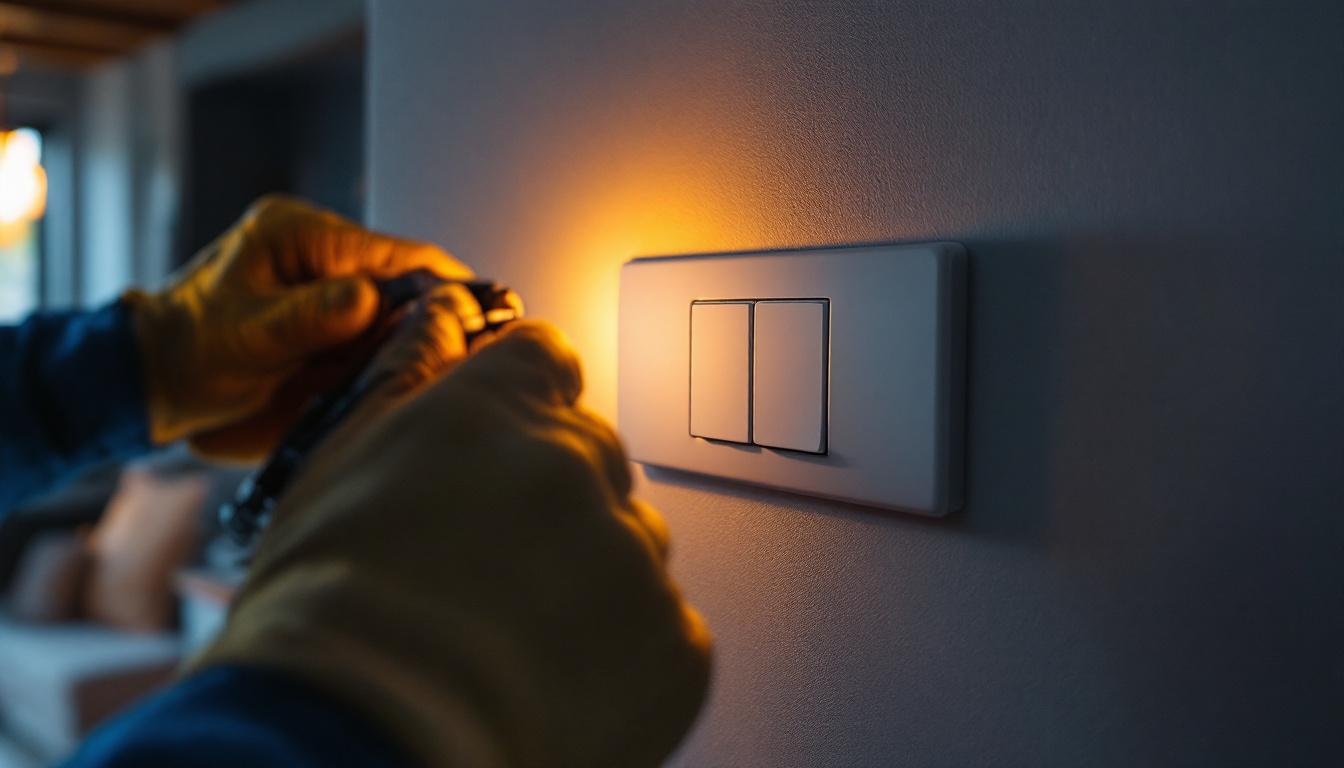
As the demand for sustainable and energy-efficient solutions grows, solar-powered lights have become an increasingly popular choice for outdoor lighting. For lighting contractors, understanding the intricacies of solar technology can enhance service offerings and provide clients with innovative solutions. This article will delve into the key aspects of solar-powered outdoor lighting, covering everything from technology and installation to benefits and considerations.
Solar-powered lights utilize photovoltaic cells to convert sunlight into electricity. This technology allows for the harnessing of renewable energy, making solar lights an eco-friendly option. For contractors, a solid grasp of how these systems work is essential for effective installation and maintenance. The shift towards solar technology not only promotes sustainability but also aligns with increasing consumer demand for energy-efficient solutions. As the world moves towards greener alternatives, understanding the intricacies of solar technology becomes a valuable asset in the construction and landscaping industries.
Solar lights consist of several key components: solar panels, batteries, LED bulbs, and control systems. The solar panel captures sunlight during the day and converts it into electrical energy, which is stored in the battery. At night, the stored energy powers the LED bulbs, providing illumination. Understanding these components helps contractors choose the right products for specific applications. Additionally, advancements in battery technology, such as lithium-ion batteries, have improved the efficiency and lifespan of solar lights, allowing for longer illumination periods and faster charging times. This knowledge enables contractors to not only recommend products but also educate clients on the benefits of modern solar lighting solutions.
There are various types of solar-powered lights available, each designed for different outdoor applications. Pathway lights, floodlights, spotlights, and decorative lights serve distinct purposes. Contractors should assess the needs of their clients to recommend the most suitable options. For instance, pathway lights enhance safety and aesthetics, while floodlights provide security and visibility in larger areas. Moreover, solar garden lights can add a whimsical touch to landscaping, creating an inviting atmosphere for outdoor gatherings. With the rise of smart solar technology, some lights now feature motion sensors and remote control capabilities, allowing for customized lighting solutions that adapt to the specific needs of the environment and the preferences of the homeowner. This versatility not only enhances the functionality of solar lights but also opens up new avenues for contractors to explore innovative designs and installations.
Installing solar-powered lights involves unique considerations compared to traditional lighting systems. Proper installation is crucial to ensure optimal performance and longevity. Here are some essential factors to keep in mind.
Before installation, conducting a thorough site assessment is vital. This includes evaluating sunlight exposure, potential obstructions, and the intended use of the lighting. Areas with ample sunlight will yield better performance, while shaded locations may require alternative solutions or additional lighting sources. It’s also important to consider seasonal changes; for instance, trees may provide shade in summer but lose leaves in winter, allowing more sunlight to reach the solar panels. Therefore, a seasonal analysis can help in making informed decisions about the placement of solar lights.
Solar lights can be mounted in various ways, including ground stakes, wall mounts, and pole mounts. The choice of mounting will depend on the specific type of light and the desired aesthetic. For example, wall-mounted lights can enhance security near entryways, while ground stakes are ideal for illuminating pathways. Additionally, adjustable mounts can provide flexibility in directing the light where it’s needed most, which is particularly beneficial in outdoor spaces that may require dynamic lighting solutions. When selecting mounting options, consider the durability of the materials used, especially in areas prone to harsh weather conditions, as this can significantly affect the longevity and functionality of the lights.
Solar-powered lights offer numerous advantages that appeal to both contractors and clients. Understanding these benefits can help contractors effectively communicate the value of solar solutions.
One of the most significant benefits of solar-powered lights is their energy efficiency. By harnessing sunlight, these lights reduce reliance on grid electricity, leading to lower energy bills. This is particularly appealing for clients looking to minimize operational costs. Additionally, solar lights often come equipped with energy-efficient LED bulbs, which not only consume less power but also have a longer lifespan than traditional incandescent bulbs. This combination of solar technology and LED efficiency means that clients can enjoy bright, reliable lighting without the worry of frequent replacements or high energy consumption.
Solar lights contribute to a reduced carbon footprint, making them an environmentally friendly choice. By using renewable energy, clients can align their outdoor lighting solutions with sustainable practices, enhancing their brand image and appeal to eco-conscious consumers. Furthermore, the installation of solar-powered lighting can help reduce light pollution, as many models are designed to emit a warm, inviting glow rather than harsh, glaring light. This not only benefits local wildlife but also creates a more pleasant atmosphere for outdoor gatherings and activities. As communities become increasingly focused on sustainability, choosing solar lighting can also foster a sense of responsibility and leadership in environmental stewardship among clients.
While solar-powered lights offer many benefits, there are challenges that contractors should be aware of. Addressing these challenges proactively can lead to successful installations and satisfied clients.
The performance of solar lights is directly tied to weather conditions. Extended periods of cloudy or rainy weather can impact the charging efficiency of solar panels. Contractors should educate clients about this limitation and consider recommending hybrid systems that incorporate traditional power sources for consistent performance.
Although solar-powered lights can lead to long-term savings, the initial investment can be higher than traditional lighting options. Contractors should provide clients with a comprehensive cost-benefit analysis, highlighting potential savings over time and the return on investment associated with energy savings.
Proper maintenance is essential for ensuring the longevity and effectiveness of solar-powered lights. Educating clients on maintenance practices can enhance customer satisfaction and reduce service calls.
Solar panels require regular cleaning to remove dirt, dust, and debris that can obstruct sunlight. Contractors should advise clients on how to clean the panels safely and effectively, ensuring optimal performance throughout the year.
The batteries in solar lights typically have a limited lifespan and may need replacement every few years. Contractors should inform clients about the signs of battery deterioration and the importance of timely replacements to maintain lighting performance.
Designing an effective solar lighting solution involves considering aesthetics, functionality, and the specific needs of the space. A well-thought-out design can enhance the overall appeal of outdoor areas while providing adequate illumination.
A comprehensive lighting plan should take into account the layout of the space, the intended use of the area, and the desired ambiance. For example, a garden may benefit from soft, ambient lighting, while a parking lot requires brighter, more focused illumination. Collaborating with clients to create a tailored lighting plan can lead to successful installations and satisfied customers.
Smart technology integration can elevate solar lighting solutions by offering features such as remote control, dimming options, and motion sensors. These advanced features enhance usability and energy efficiency, making them appealing to tech-savvy clients. Contractors should stay informed about the latest smart technology trends to provide innovative solutions.
Examining successful solar lighting projects can provide valuable insights for contractors. These case studies highlight the versatility and effectiveness of solar-powered lights in various settings.
A residential client sought to enhance the safety and aesthetics of their garden. By installing solar pathway lights and decorative lanterns, the contractor created a warm and inviting atmosphere. The solar lights not only improved visibility but also contributed to the homeowner’s commitment to sustainability.
In a commercial setting, a contractor was tasked with illuminating a large parking lot. By strategically placing solar floodlights with motion sensors, the contractor ensured safety and security while minimizing energy costs. The client appreciated the reduced electricity bills and the environmentally friendly approach.
The solar lighting industry is continually evolving, with new technologies and trends emerging. Staying ahead of these trends can position contractors as leaders in the field.
Ongoing research and development in solar panel technology are leading to increased efficiency and performance. Higher-efficiency panels can capture more sunlight, resulting in better energy output. Contractors should keep abreast of these advancements to offer clients the latest and most effective solutions.
As more homeowners and businesses adopt renewable energy systems, integrating solar lighting with solar panels or wind turbines can create a comprehensive energy solution. This trend not only enhances sustainability but also provides clients with greater energy independence.
Solar-powered lights represent a significant advancement in outdoor lighting technology, offering numerous benefits for both contractors and clients. By understanding the technology, installation considerations, and maintenance requirements, lighting contractors can provide exceptional service and innovative solutions. As the industry continues to evolve, staying informed about trends and advancements will ensure that contractors remain competitive and capable of meeting the diverse needs of their clients.
Incorporating solar-powered lighting into service offerings not only enhances a contractor’s portfolio but also aligns with the growing demand for sustainable practices. Embracing this technology can lead to successful projects, satisfied clients, and a brighter, more sustainable future.
Ready to elevate your outdoor lighting projects with the latest solar-powered solutions? At LumenWholesale, we provide lighting contractors like you with the highest quality, spec-grade lighting products at unbeatable wholesale prices. Say goodbye to local distributor markups and hello to superior lighting that meets the highest industry standards. With our hassle-free bulk buying and free shipping, you can trust that you’re getting premium lighting at the best value — without any hidden fees. Don’t compromise on quality, affordability, or convenience. Take the next step towards a brighter, more sustainable future and explore our selection at LumenWholesale today.

Discover the essential insights every lighting contractor needs about under shelf LED strip lighting.

Discover how the innovative Giant Light Bulb Light is revolutionizing the lighting industry by offering cost-effective solutions for contractors.

Discover expert tips on mastering three rocker switches for lighting contractors.

Discover how square LED lighting is revolutionizing the industry for lighting contractors by enhancing energy efficiency, reducing costs, and offering versatile design options.